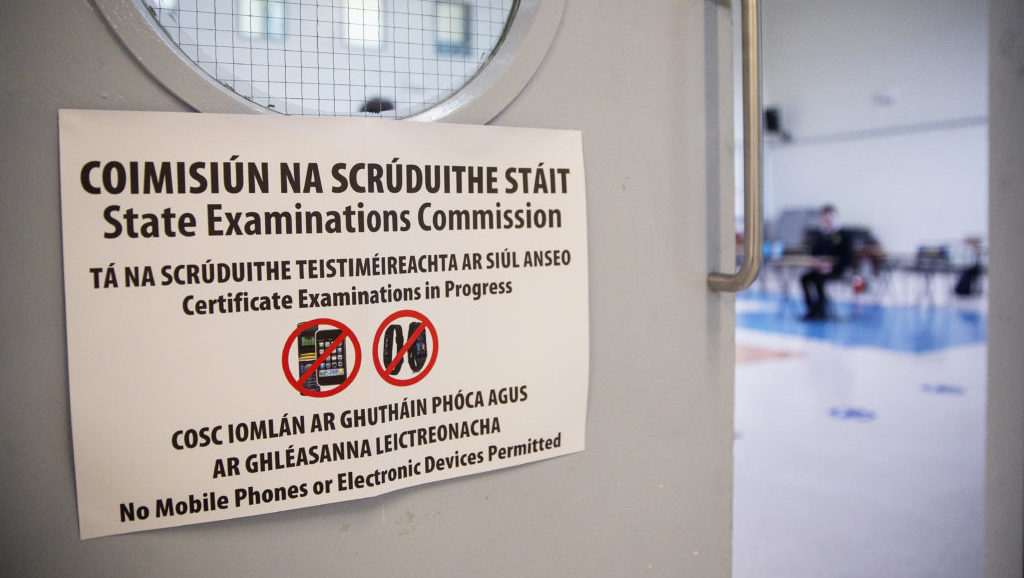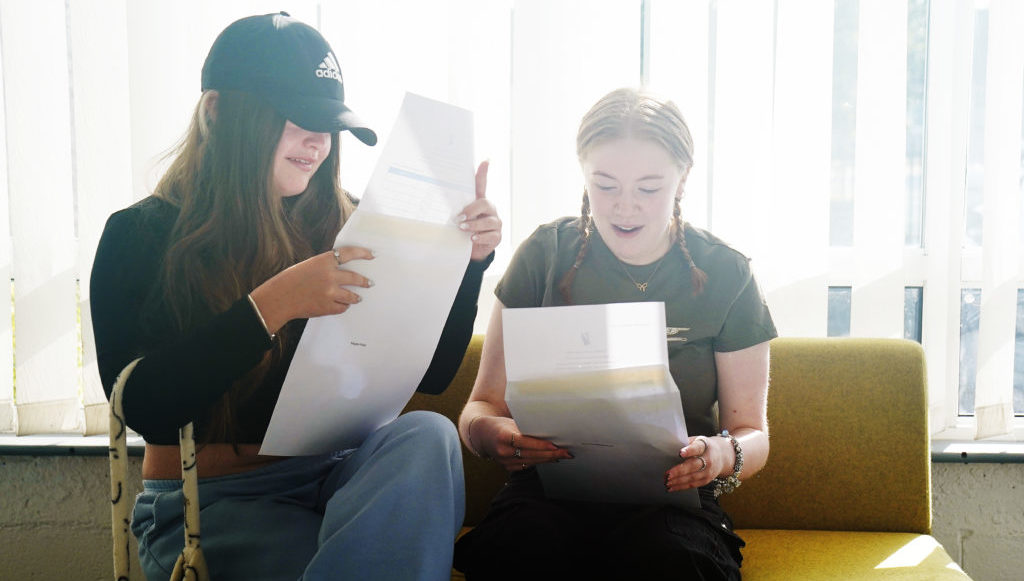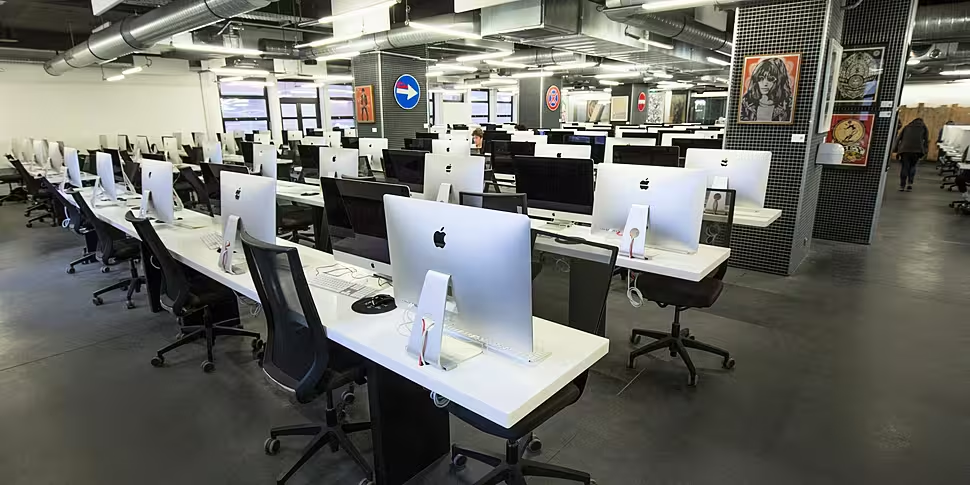Could continuous assessment as part of the Leaving Certificate curriculum disproportionately benefit children from well-off families?
Labour spokesperson for education Eoghan Kenny said in the Dáil that the political party believes this would be the case.
On Lunchtime Live, Deputy Kenny reiterated his point.
“I questioned yesterday in the Dáil in relation to senior cycle reform,” he said.
“As many listeners might be aware, I was teaching in secondary school up until my election in November and the changes to senior cycle reform is that there's going to be a 40% individual project brought in for each subject over the course of the next two years.
“But some subjects will be beginning this September coming for the 2025/2026 academic year.”
 A State Examinations Commission sign on the a door at Beneavin De La Salle College, Finglas. Picture date: Wednesday June 9, 2021.
A State Examinations Commission sign on the a door at Beneavin De La Salle College, Finglas. Picture date: Wednesday June 9, 2021.Deputy Kenny said this year's transition year students going into fifth year this September coming will be the ones that will start the senior cycle reform.
“Teachers across the country are not confident of this reform and have asked continuously now for a delay until proper specification is outlined and until proper training is given to every single teacher teaching these subjects,” he said.
“Just from my own perspective - [before the election] I took over a cohort of transition year students and I was trying to encourage them, of course, to keep on business studies for the leaving search.
“That was difficult for me because I had one training day and I had a number of hours of in service - so I'm trying to come to terms with the new specification that the department are trying to outline for this 40% project.
“Teachers across the country cannot, in one training day, understand the new specification, so it's going to be quite difficult for teachers to continue to do this new 40% project if they don't know themselves what this specification is.”
 Leaving Certificate results, © PA Wire/PA Images
Leaving Certificate results, © PA Wire/PA ImagesDeputy Kenny said the changes would favour affluent families as they have more modern technology to work with.
“If you look at local voluntary schools and you compare them to private fee paying schools, local voluntary schools, probably more than likely the one I went to, in a 100 year old infrastructure, very sporadic WiFi connections, very basic science labs,” he said.
“Then you look at private fee paying schools, which are very evident across the country, they have up to date science labs, the majority of them would have lab technicians even to show students how to use the lab.
“There is a complete difference between the local voluntary school and the private fee paying schools.
“I have great sympathy with families who are going to voluntary schools and then have to try and complete a 40% project where, in some instances, they might even have access to technology at home and they might not have access to WiFi at home - and these projects have to be completed at home by the student themselves.”
 Boy assembling a homework project at home. Image: Alamy
Boy assembling a homework project at home. Image: AlamyAlso on the show, Teachers Union of Ireland General Secretary Michael Gillespie said he agrees with Deputy Kenny’s points.
He believes there will not be enough training given to teachers and these reforms will give some students an unfair advantage.
Listen back here:
Main image: Computer lab at a private institute in Paris. Image: Alamy









